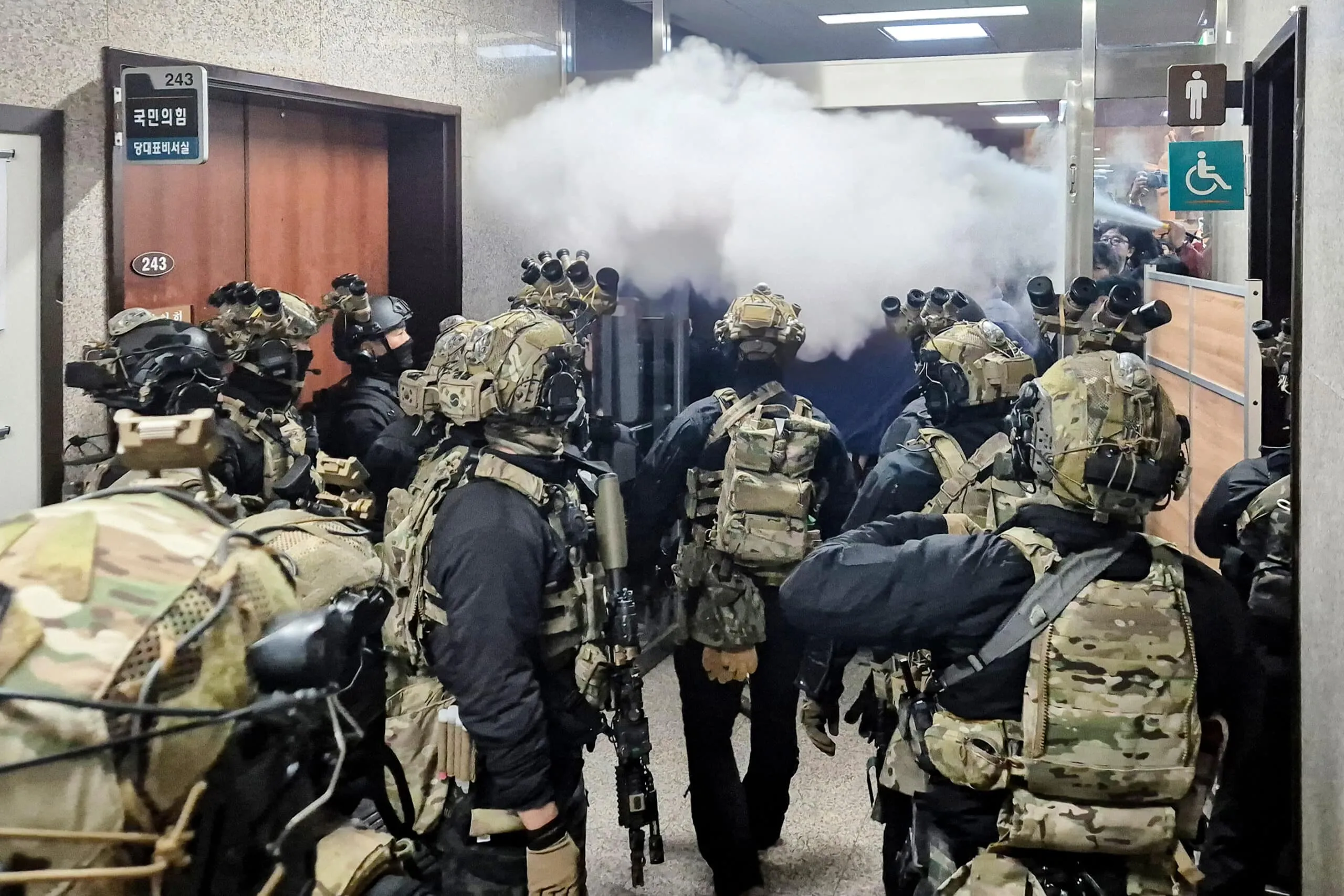South Korea’s Martial Law: A Shocking Turn of Events and Its Rapid Reversal
In an unprecedented political drama that stunned the nation and the world, South Korea experienced a brief but intense period of martial law that lasted just six hours on December 3, 2024. President Yoon Suk Yeol’s sudden declaration sent shockwaves through the country’s democratic institutions, triggering a swift and decisive response from the National Assembly that ultimately reversed the extraordinary measure.
The events unfolded late in the evening when President Yoon, facing mounting political pressure and ongoing corruption scandals, made the controversial decision to declare martial law. Citing concerns about “anti-state” forces, he attempted to assert extraordinary executive powers in a move that immediately drew comparisons to South Korea’s dark historical periods of military dictatorship.
Eyewitnesses reported dramatic scenes around the National Assembly building, with heavily armed troops deploying to strategic locations. Soldiers reportedly attempted to block lawmakers from entering the parliamentary complex, creating a tense and unprecedented situation that harked back to the country’s turbulent political past.
The political landscape quickly transformed as the opposition Democratic Party, which controls the National Assembly, mounted an immediate and decisive counteraction. In a remarkable display of political unity, lawmakers voted 190-0 to reject the martial law declaration – including members of President Yoon’s own party.
Key moments of the crisis included:
- Late-night martial law declaration by President Yoon
- Rapid deployment of military personnel
- Massive public protests erupting across major cities
- Immediate parliamentary rejection of the measure
- Forced rescission of martial law within hours
Public reaction was swift and overwhelmingly negative. Social media platforms became flooded with messages of disbelief and concern, with many South Koreans expressing shock at what seemed like a potential return to the country’s authoritarian past. Thousands of protesters gathered in front of the National Assembly, demanding the president’s resignation.
The constitutional implications of Yoon’s actions immediately came under intense scrutiny. While the South Korean constitution allows for martial law declarations in emergency situations, the National Assembly retains the power to lift such declarations – a mechanism that proved crucial in this instance.
Political analysts quickly began dissecting the motivations behind the unprecedented move. Many viewed it as a desperate attempt by President Yoon to overcome his struggles in the opposition-controlled parliament and potentially distract from ongoing corruption investigations involving him and his wife.
In the immediate aftermath, opposition parties moved to initiate impeachment proceedings against President Yoon, arguing that his actions were fundamentally unconstitutional and threatened the democratic foundations of South Korea. The political landscape appeared dramatically transformed in just a matter of hours.
The international community watched with growing concern, with diplomatic channels buzzing about the potential implications of such a dramatic political maneuver. Comparisons were quickly drawn to South Korea’s historical periods of military dictatorship, particularly the regimes of Park Chung-hee and Chun Doo-hwan.
By the early morning hours, President Yoon was forced to completely rescind the martial law declaration, effectively admitting defeat in his extraordinary political gambit. The rapid reversal highlighted the resilience of South Korea’s democratic institutions and the power of unified political opposition.
As the dust began to settle, questions remained about the long-term political consequences. The events of that night were likely to have significant implications for future electoral dynamics, public trust in political leadership, and the delicate balance of power within South Korean government.
Conclusion: South Korea’s six-hour martial law episode stands as a remarkable testament to the strength of democratic processes and the power of collective political resistance. It serves as a crucial reminder of the vigilance required to protect democratic institutions from potential authoritarian overreach.
Disclaimer: This article is based on reported events and represents a journalistic interpretation of the political crisis.






Leave a Comment